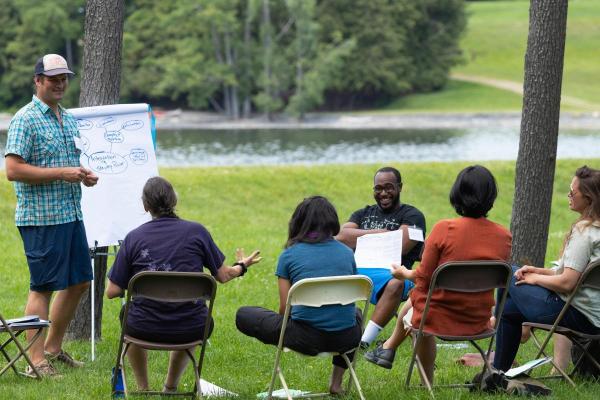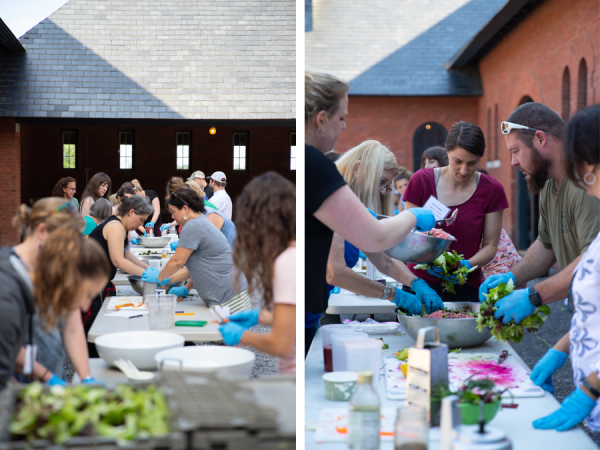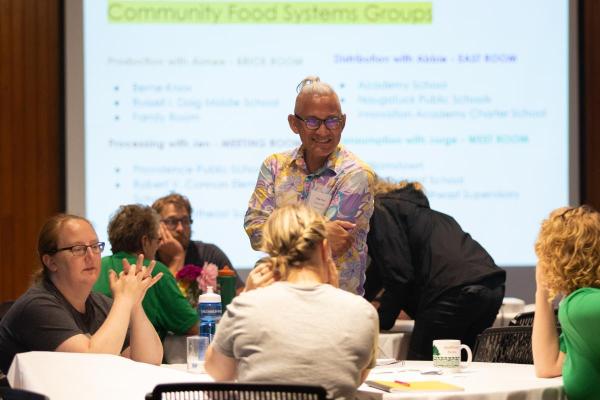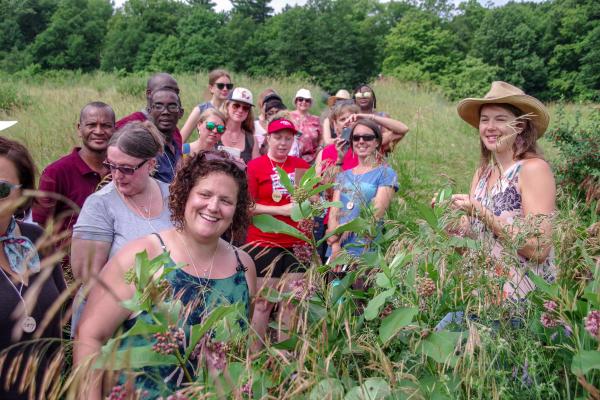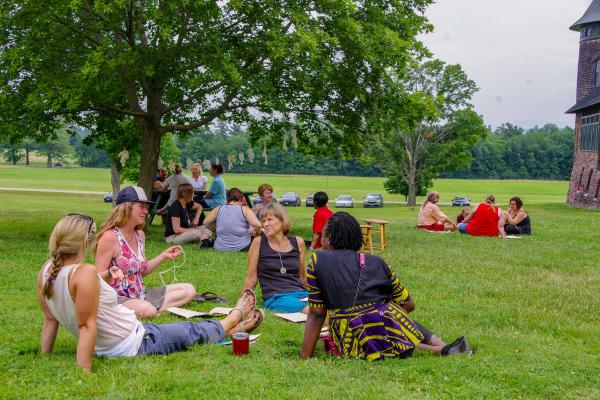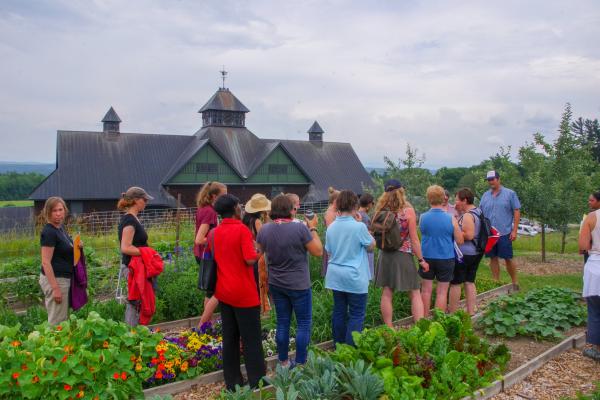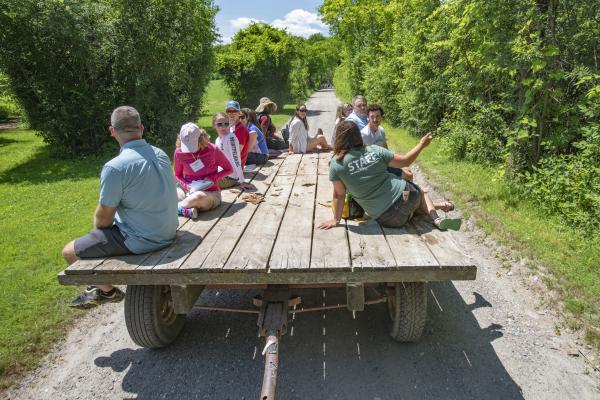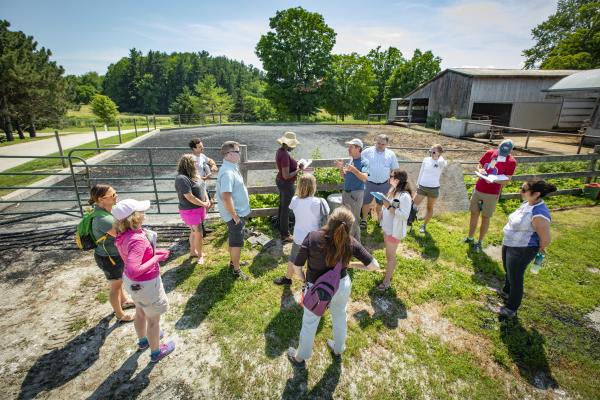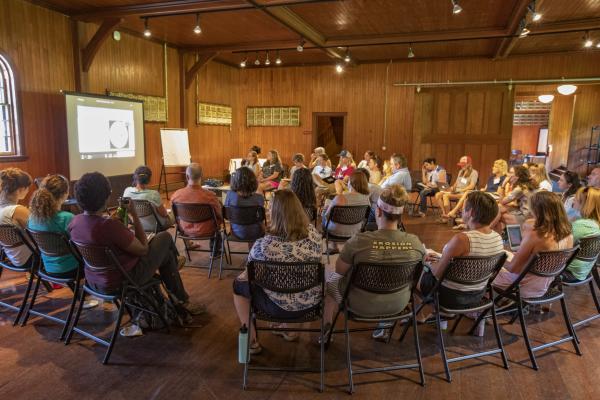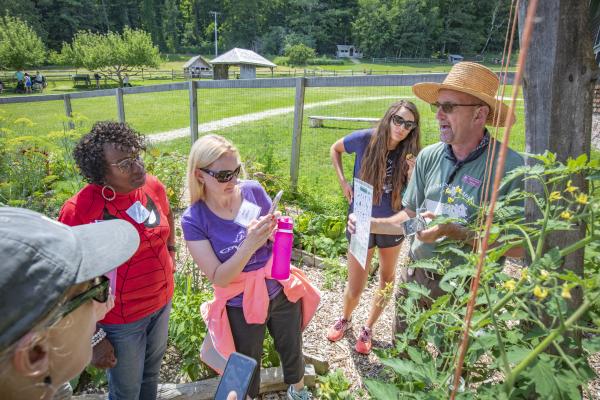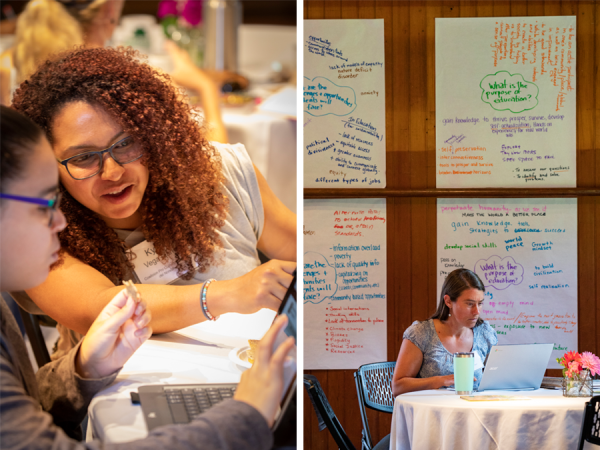Inspiring Teachers All Summer Long
A recent NPR study found that over 80% of American parents want climate change theory taught in their children’s schools, and 86% of American teachers agree. However, more than half of teachers say they don't address the topic in their classrooms. The most common reason given: climate change is outside their subject matter. At Shelburne Farms, we believe climate change and sustainability is a lens that can —and must— be applied to all subject areas, and we work with educators worldwide to build this capacity.
Summers on the Farm are bustling with educator professional learning programs dedicated to educating for a more healthy and just future. Here is a glimpse into how the summer has begun:
June marked the beginning of our 9th annual Northeast Farm to School Institute with a three-day kickoff retreat at Shelburne Farms. This year-long program supports twelve school and early childhood teams from the Northeast in designing and implementing effective, school-wide Farm to School programs— programs that create a culture of wellness, improve food quality and access, engage students in agriculture and nutrition education, improve eating habits, and strengthen local food systems. Additionally, representatives from all over the USA — Montana, Maine, West Virginia, Virginia, New York Mississippi, and Massachusetts — joined to learn about the Institute model to adapt it to their own states.
The Northeast Farm to School Institute is the cornerstone professional learning opportunity of Vermont FEED, our Farm to School partnership project with NOFA-VT.
Twenty-five educators from all over the world — Haiti, Missouri, Nigeria, California, Vermont, New York, Maryland, and New Hampshire — gathered in July 2019 for our workshop for early childhood educators: Project Seasons for Young Learners: Cultivating Joy & Wonder. This week-long workshop uses the Shelburne Farms campus to explore different ecosystems (farm, forest, lake, and wetland) to support curriculum development utilizing the natural world. Simultaneously, the group is working to deepen their knowledge of place-based learning, so they return to their schools with ideas to engage their own communities as a resource in their teaching.
Educators passionate about combating climate change spent a week together at the Farm learning how to integrate climate change education throughout their curriculum. This year-long Climate Resiliency Fellowship convenes teams of educators to learn from Shelburne Farms educators, and one another, to support, sustain, and advance climate change education and action. This summer gathering provided foundational content on climate change and climate change education for teachers of all subject areas with an emphasis on systems thinking and diverse perspectives.
Throughout the school year, they’ll work together to create authentic climate action projects that are shaped by student interest and voice. During seasonal gatherings and check-ins, teams will continue to explore climate change education through arts integration, STEM learning, and solutions-based approaches.
Designed to be dynamic and engaging, the Summer Institute on Education for Sustainability offered teachers the time and space to explore content and skills, and develop projects or units while providing opportunities to network with colleagues and leaders in the field of Education for Sustainability. This Institute featured a blend of individual work time, peer-to-peer feedback, resource sharing, hands-on learning experiences, and large and small group discussions. The overall goal: provide teachers with the opportunity to develop connections between their curriculum, local environment, and community and reflect in an inspiring setting that models sustainability and systems-thinking. The 2019 Summer Institute on EFS used the lens of sustainability to focus on local, regional, and global food systems.

